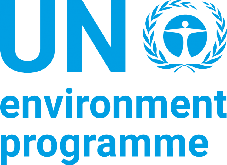Nigeria, Africa’s most populous nation, has become the continent’s first BreatheLife country member.
Its air pollution efforts are centred around a National Action Plan to tackle short-lived climate pollutants — long-lived climate “forcers” that include black carbon, methane and ground-level ozone, which are harmful to people, ecosystems and agricultural productivity — that was approved mid-2019 by the country’s Federal Executive Council.
If its 22 key mitigation measures (see table) were to be fully implemented, Nigeria would see a whopping 83 per cent reduction in black carbon emissions and 61 per cent reduction in methane emissions, compared to a business-as-usual growth trajectory, by 2030.
This would also reduce exposure to air pollution across Nigeria by 22 per cent in 2030 and save an estimated 7,000 people from premature death by diseases brought on by exposure to air pollution, while also cutting nitrogen dioxide, particulate matter and carbon dioxide emissions.
Nigeria has a population of 190 million people, many of whom are exposed to levels of air pollution that exceed World Health Organisation guidelines, a situation that resulted in 290,000 premature deaths in 2016, including 98,000 child deaths from respiratory infections.
“Nigeria’s ambitious National Action Plan to Reduce Short-Lived Climate Pollutants can deliver real health benefits to Nigerians through improved air quality while helping Nigeria meet its international climate change commitment,” Director of Public health, Federal Ministry of Health, Dr. U. M. Ene-Obong.
Nigeria’s Nationally-Determined Contribution to the Paris Agreement includes elements that are closely linked to the mitigation of short-lived climate pollutants.
Developed as part of the Climate and Clean Air Coalition’s SNAP Initiative (Supporting National Action and Planning on Short-Lived Climate Pollutants), the plan encompasses measures across all sectors, with a special focus on cookstoves, agriculture, transport, brick kilns and the oil and gas industry.
Read the full story here.
